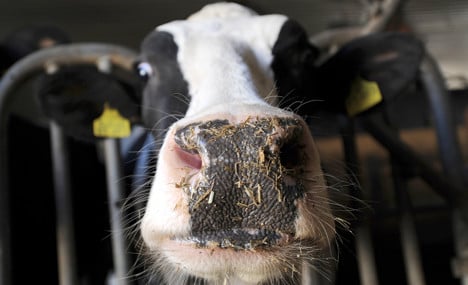While Germans are widely viewed as socially and ecologically conscious, recent revelations about the country’s agriculture system have called that reputation into question.
Nearly all of the country’s poultry live in cramped conditions that can lead to disease – and to keep the birds alive, more than 90 percent are fed antibiotics, according to government-sponsored studies.
Birds aren’t the only animals that live in difficult conditions. Animal rights activists say cows and pigs are also often packed together like sardines on German farms.
The problem is, according to politicians and industry leaders, that consumers are simply not willing to pay more for more humanely-produced food.
They point to studies like this one, that show Germans pay less for food than consumers in Spain, Italy and Great Britain and, though they profess to prefer high-quality fare, also like to shop at discounters like Lidl, Aldi and Netto.
At the same time, Germany really has been a leader in making agriculture more environmentally friendly. Take the fact that Germans rejected genetically modified crops so strongly, that the last of the companies still developing them here this week moved its operations abroad.
Would you abandon ultra-cheap shopping to be kinder to animals and the environment?
Registered users at The Local may add their comments in the field below. If you haven’t signed up yet, you can do so here – it’s free and only takes a moment.



 Please whitelist us to continue reading.
Please whitelist us to continue reading.
Member comments